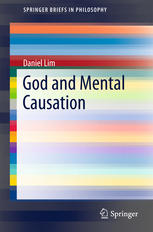

Most ebook files are in PDF format, so you can easily read them using various software such as Foxit Reader or directly on the Google Chrome browser.
Some ebook files are released by publishers in other formats such as .awz, .mobi, .epub, .fb2, etc. You may need to install specific software to read these formats on mobile/PC, such as Calibre.
Please read the tutorial at this link: https://ebookbell.com/faq
We offer FREE conversion to the popular formats you request; however, this may take some time. Therefore, right after payment, please email us, and we will try to provide the service as quickly as possible.
For some exceptional file formats or broken links (if any), please refrain from opening any disputes. Instead, email us first, and we will try to assist within a maximum of 6 hours.
EbookBell Team

4.4
82 reviewsThis book lies at the intersection of philosophy of mind and philosophy of religion and operates on the assumption that dialogue between the two disciplines can be fruitful. In particular it focuses on how debates in the philosophy of mind regarding the nature of mental causation relate to debates in the philosophy of religion regarding divine action, creaturely causation, and existence of God.
The book is divided into two parts. The first deals with Jaegwon Kim’s so-called Supervenience Argument (SA) against non-reductive physicalism. One important observation is that the structural similarities between non-reductive physicalism and ‘orthodox’ theism make it convenient to co-opt non-reductive physicalist solutions to the SA in defending the possibility of creaturely causation in the philosophy of religion. The SA is used as a foil to discuss the relative merits of Malebranche’s so-called Conservation is Continuous Creation Argument for Occasionalism (CCCA). Moverover, the so-called compatibilist strategy (Karen Bennett 2003, 2009) for developing a non-reductive physicalist response to the Supervenience Argument is defended and developed. This strategy is then deployed in the philosophy of religion to defend the possibility of creaturely causation against the CCCA.